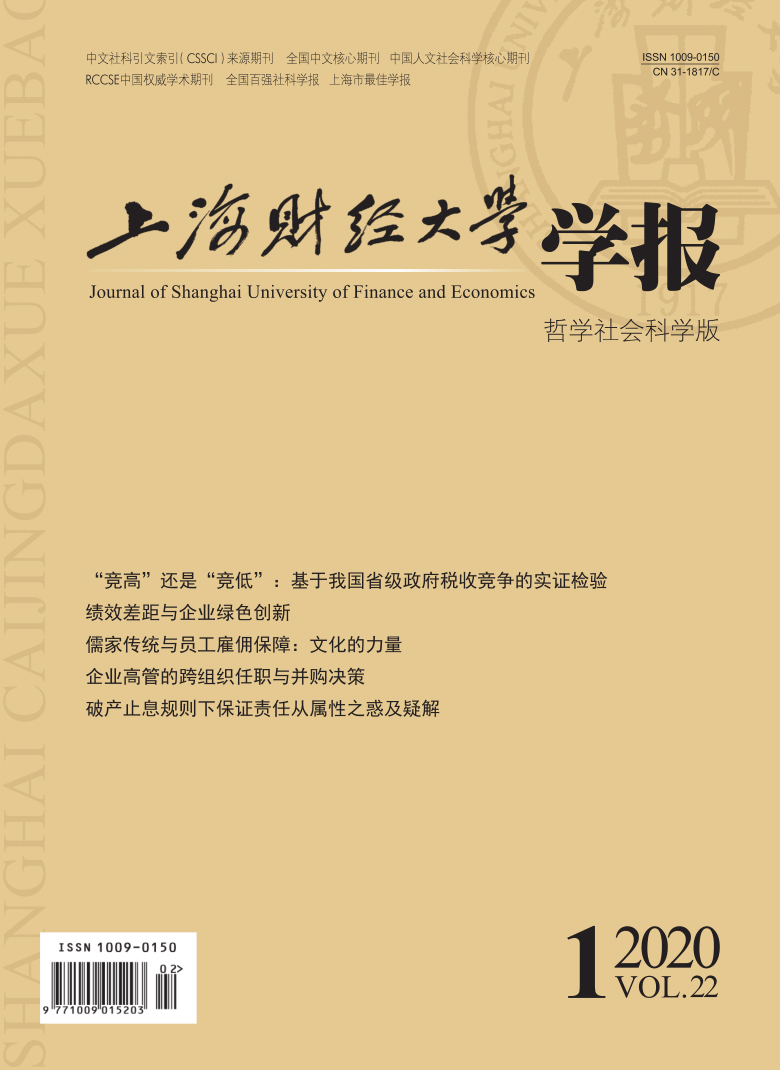Enterprise performance feedback is an important decision-making reference point for managers to formulate innovation strategy. However, most of the existing researches on the impact of performance feedback on innovation generalize enterprise innovation and ignore the differentiation characteristics of different innovation forms in value creation effect and investment return cycle, which leads the academia to be unable to accurately recognize the reference effect of performance gap on enterprise innovation decision-making. In order to explore whether the green innovation of enterprises still follows the decision-making logic of “poor performance leads to change, while good performance leads to strategy persistence”, based on the prospect theory and the performance feedback theory, using the green patent data of listed companies in China’s high-tech manufacturing industry, and building a balanced panel database with a time window of 2010-2017, this paper empirically tests the reference effect of performance surplus and performance deficit on the decision-making of green innovation, and introduces the executive incentive and property right system into the research framework to explore the contingency decision-making process of “performance-green innovation” at the dual-level of corporate governance and institutional logic. The results show that: Performance deficit and performance surplus have a differential decision reference effect on green innovation. Performance deficit can effectively drive the performance of green innovation, while performance surplus shows a significant inhibition effect. The executive incentive has an important influence on the decision-making practice of “poor performance leads to change”. Both compensation and reputation incentives alleviate the restraining effect of performance surplus and enhance the promoting effect of performance deficit. The decision-making practice of “poverty leads to change” has property heterogeneity. In non-state-owned enterprises, the decision feedback of performance gap on green innovation still shows “surplus-inhibition, inverse-promotion”, and only compensation can alleviate the inhibition effect of performance gap on green innovation, but the reputation incentive has no significant effect on innovation decision-making practice. In state-owned enterprises, green innovation is not sensitive to performance gap. Based on the perspective of performance feedback, this paper can reveal the decision-making motivation of green innovation reform, providing a new contingency thinking for the reference effect of performance gap on enterprise innovation and helping to solve theoretical conflicts between the prospect theory and the threat rigidity theory, and also provide scientific decisions for the green development of enterprises from the perspectives of corporate governance and property right system under the background of state-owned enterprise reform .
 / Journals / Journal of Shanghai University of Finance and Economics
/ Journals / Journal of Shanghai University of Finance and EconomicsJournal of Shanghai University of Finance and Economics
LiuYuanchun, Editor-in-Chief
ZhengChunrong, Vice Executive Editor-in-Chief
GuoChanglin YanJinqiang WangWenbin WuWenfang, Vice Editor-in-Chief
Enterprise Performance Gap and Green Innovation:A Contingency Thought on Decision Convention of “Poor Performance Leads to Change”
Journal of Shanghai University of Finance and Economics Vol. 22, Issue 01, pp. 18 - 33 (2020) DOI:10.16538/j.cnki.jsufe.2020.01.002
Summary
References
Summary
Cite this article
Wang Xu, Wang Lan. Enterprise Performance Gap and Green Innovation:A Contingency Thought on Decision Convention of “Poor Performance Leads to Change”[J]. Journal of Shanghai University of Finance and Economics, 2020, 22(1): 18-33.
Export Citations as:
For
ISSUE COVER
RELATED ARTICLES




 6402
6402  9697
9697

